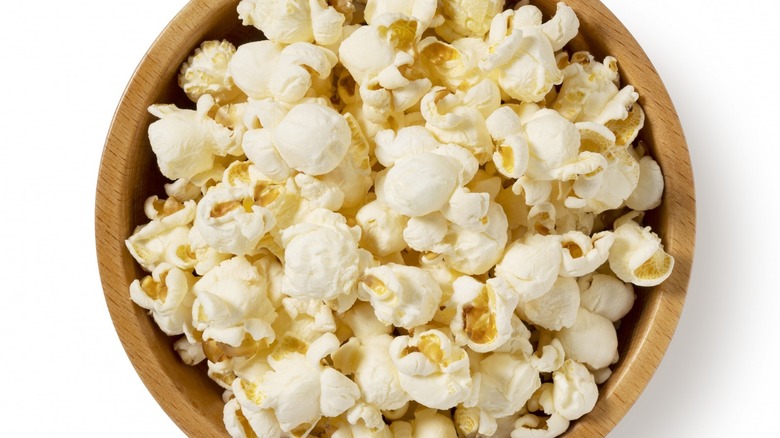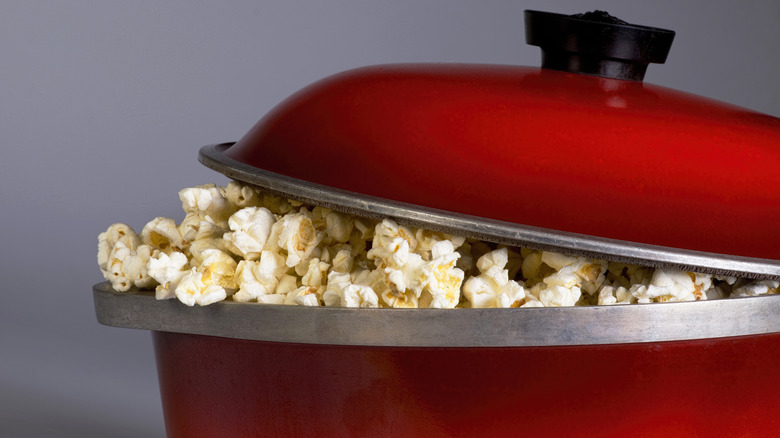Why You Should Be Popping Your Own Popcorn
Humans crave coffee in the morning, marshmallows while camping, and popcorn at the theater. But when it comes to that last one, a bowl of our favorite crunchy snack is essential while watching a movie at home, too. And when choosing between the salty, chemical-laden microwave popcorn or the whole kernels you can pop yourself, you should definitely go with the homemade option.
Why? It's healthier and tastier. For starters, making your own popcorn is better for you because you can use less oil and control your portions. It also means you avoid the harmful chemicals found in microwave popcorn bags, such as PFAS associated with "high blood pressure, decreased fertility in women, liver damage, cancer, low birthweight and an increased risk of asthma and thyroid disease," per UCLA Health.
Homemade popcorn also tastes better and fresher. When the kernels cook in a pan, their moisture within heats up under pressure. As the moisture tries to escape, the kernel explodes, causing the hot water in the kernels to steam them into fat, tasty morsels. Extra space in the pan also allows the popped pieces to rise and avoid the direct heat, staying tender and tasty. And best of all, the seasonings are totally up to you.
The stovetop is the better way to pop
There are a few steps to learn before making popcorn on the stove. First, choose a pot with a heavy bottom and a lid. A lightweight pot won't distribute the heat as well, and uneven heat can either cause kernels to burn or remain un-popped. From there, heat a few kernels in about ¼ cup of oil in a large pot over medium heat until one pops. Then add ¾ cup kernels in a single layer, cover, and wait, shaking the pot every so often until all the kernels have popped.
As for what type of popcorn you should use, the Escoffier School of Culinary Arts recommends butterfly kernels, which are the better choice for cooking in hot oil due to their flatter edges. Heirloom kernels, which are smaller and have no hull, are also good for making more nutritious popcorn, says The Healthy Home Economist. This also means no pieces will get stuck in your teeth, which can cause dental issues. Other kernel varieties are gold, which pop up larger and look prettier, and mushroom, preferable if you're making chocolate- or peanut butter-coated popcorn.
Oil is needed to coat the bottom of your pan and prevent burning. Choose oils with a higher smoke point, such as peanut, coconut, canola, corn, avocado, or grapeseed. Finally, flavor your popcorn with salt and toppings such as parmesan cheese or cinnamon sugar, and never look back at the microwave.

